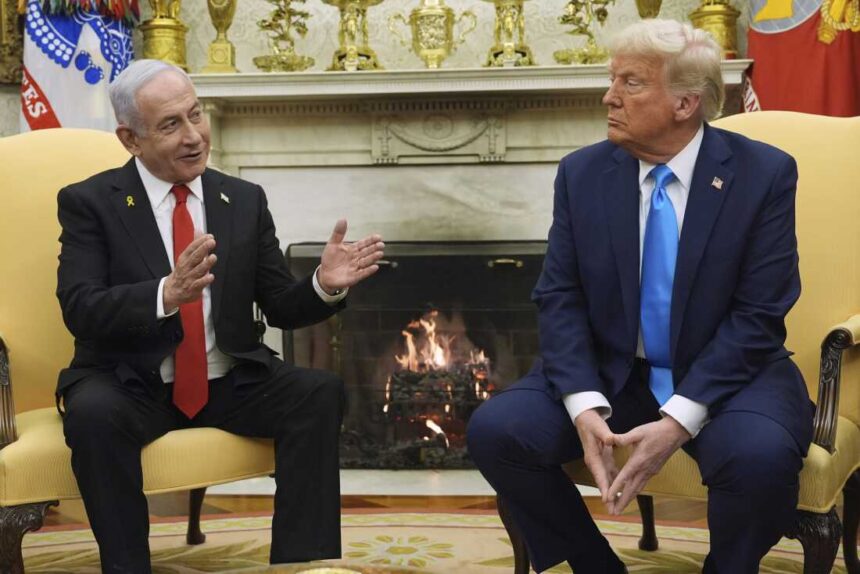U.S. President Donald Trump has reportedly severed direct communication with Israeli Prime Minister Benjamin Netanyahu, a dramatic rupture that reflects growing frustration in Washington over Israel’s stance on Gaza and a broader reorientation of U.S. strategy in the Middle East.
The fallout comes as a senior U.S. official warned Israeli leaders that they would face a “very heavy price” if they continued to resist a ceasefire and prisoner exchange deal in Gaza. The unnamed official, speaking in a recent closed-door meeting with families of Israeli hostages, criticized the Netanyahu government for stalling negotiations and said the United States would pursue a regional agreement with Saudi Arabia even without Israel’s participation.
“If until now the hostages paid the price for not ending the war,” the official said, “today the price will be much heavier for Israel — and not just for the hostages.” The official also emphasized that the recently brokered truce with Yemen’s Houthis was only the beginning, warning, “If Israel doesn’t come to its senses, even the ‘Deal of the Millennium’ will happen without it.”
Those present at the meeting interpreted the remarks as a sharp departure from Washington’s traditionally unwavering support for Israel — a sign that the strategic relationship is no longer immune to friction.
This warning coincides with a deeper rupture: President Trump has reportedly ended all direct contact with Netanyahu, whom he now views as politically manipulative and out of step with U.S. priorities. According to reports, the final straw came when senior Israeli officials — particularly Strategic Affairs Minister Ron Dermer — adopted what Trump’s advisers described as an arrogant and prescriptive tone in meetings with Republican power brokers.
Sources familiar with the matter say Trump’s inner circle now believes Netanyahu has been attempting to use the U.S. administration for domestic political leverage, and that the relationship is no longer tenable under current conditions.
Beyond personal grievances, the breakdown reflects serious strategic differences. The Trump administration is said to be increasingly disillusioned with Israel’s lack of a coherent plan regarding Iran’s nuclear ambitions, the growing strength of Houthi forces in Yemen, and the uncertain future of Gaza. With Israel offering few tangible solutions, U.S. officials argue the country is no longer a reliable pillar in America’s regional architecture.
The strain intensified after Trump unilaterally announced a ceasefire initiative with Yemen’s Houthis — a move that reportedly blindsided Netanyahu’s government. The lack of coordination reinforced Washington’s growing sense that Israel is now acting as a self-interested outlier rather than a cooperative ally.
These developments come ahead of Trump’s official diplomatic tour of the Gulf, set to begin May 13, with stops in Saudi Arabia, Qatar, and the United Arab Emirates. Notably, Israel is excluded from the itinerary. The trip is expected to focus on energy security, arms cooperation, and deeper economic integration — areas where Gulf monarchies are increasingly viewed as more aligned with Washington’s current agenda than Israel.
The shift marks a stunning reversal from the close Trump-Netanyahu alliance that characterized the former president’s first term, which saw the U.S. embassy moved to Jerusalem and the brokering of the Abraham Accords. Today, however, Israel’s privileged status in American foreign policy appears to be slipping.
The message from Washington is no longer subtle: Israel must adapt to a changing regional landscape — or risk being left behind.







